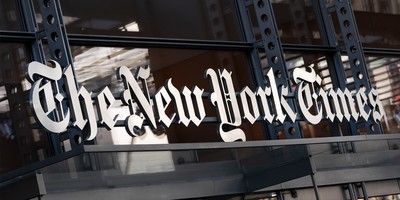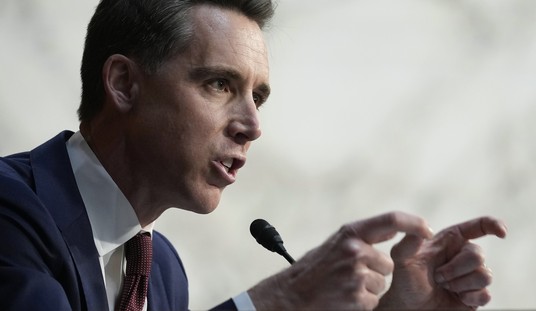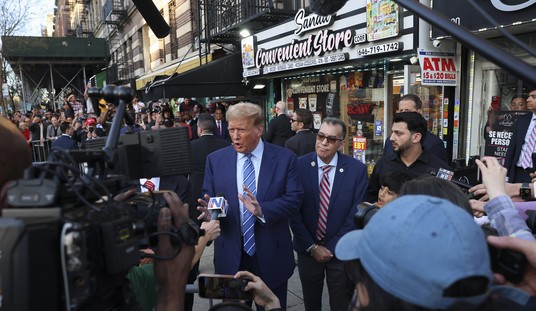WASHINGTON -- Barack Obama may be exactly what his supporters suppose him to be. Not, however, for reasons most Americans will celebrate.
Obama may be the fulfillment of modern liberalism. Explaining why many working class voters are "bitter," he said they "cling" to guns, religion and "antipathy to people who aren't like them" because of "frustrations." His implication was that their primitivism, superstition and bigotry are balm for resentments they feel because of America's grinding injustice.
By so speaking, Obama does fulfill liberalism's transformation since Franklin Roosevelt. What had been under FDR a celebration of America and the values of its working people has become a doctrine of condescension toward those people and the supposedly coarse and vulgar country that pleases them.
When a supporter told Adlai Stevenson, the losing Democratic presidential nominee in 1952 and 1956, that thinking people supported him, Stevenson said, "Yes, but I need to win a majority." When another supporter told Stevenson, "You educated the people through your campaign," Stevenson replied, "But a lot of people flunked the course." Michael Barone, in "Our Country: The Shaping of America From Roosevelt to Reagan," wrote: "It is unthinkable that Roosevelt would ever have said those things or that such thoughts ever would have crossed his mind." Barone added: "Stevenson was the first leading Democratic politician to become a critic rather than a celebrator of middle-class American culture -- the prototype of the liberal Democrat who would judge ordinary Americans by an abstract standard and find them wanting."
Stevenson, like Obama, energized young, educated professionals for whom, Barone wrote, "what was attractive was not his platform but his attitude." They sought from Stevenson "not so much changes in public policy as validation of their own cultural stance." They especially rejected "American exceptionalism, the notion that the United States was specially good and decent," rather than -- in Michelle Obama's words -- "just downright mean."
Recommended
The emblematic book of the new liberalism was "The Affluent Society" by Harvard economist John Kenneth Galbraith. He argued that the power of advertising to manipulate the bovine public is so powerful that the law of supply and demand has been vitiated. Manufacturers can manufacture in the American herd whatever demand the manufacturers want to supply. Because the manipulable masses are easily given a "false consciousness" (another category, like religion as the "opiate" of the suffering masses, that liberalism appropriated from Marxism), four things follow:
First, the consent of the governed, when their behavior is governed by their false consciousnesses, is unimportant. Second, the public requires the supervision of a progressive elite which, somehow emancipated from false consciousness, can engineer true consciousness. Third, because consciousness is a reflection of social conditions, true consciousness is engineered by progressive social reforms. Fourth, because people in the grip of false consciousness cannot be expected to demand or even consent to such reforms, those reforms usually must be imposed, for example, by judicial fiats.
The iconic public intellectual of liberal condescension was Columbia University historian Richard Hofstadter, who died in 1970 but whose spirit still permeated that school when Obama matriculated there in 1981. Hofstadter pioneered the rhetorical tactic that Obama has revived with his diagnosis of working-class Democrats as victims -- the indispensable category in liberal theory. The tactic is to dismiss rather than refute those with whom you disagree.
Obama's dismissal is: Americans, especially working-class conservatives, are unable, because of their false consciousness, to deconstruct their social context and embrace the liberal program. Today that program is to elect Obama, thereby making his wife at long last proud of America.
Hofstadter dismissed conservatives as victims of character flaws and psychological disorders -- a "paranoid style" of politics rooted in "status anxiety," etc. Conservatism rose on a tide of votes cast by people irritated by the liberalism of condescension.
Obama voiced such liberalism with his "bitterness" remarks to an audience of affluent San Franciscans. Perfect.
When Democrats convened in San Francisco in 1984, en route to losing 49 states, Jeane Kirkpatrick -- a former FDR Democrat then serving in the Cabinet of another such, Ronald Reagan -- said "San Francisco Democrats" are people who "blame America first." Today, they blame Americans for America being "downright mean."
Obama's apology for his embittering sociology of "bitterness" -- "I didn't say it as well as I could have" -- occurred in Muncie, Ind. Perfect.
In 1929 and 1937 Robert and Helen Lynd published two seminal books of American sociology. They were sympathetic studies of a medium-sized manufacturing city they called "Middletown," coping -- reasonably successfully, optimistically and harmoniously -- with life's vicissitudes. "Middletown" was in fact Muncie, Ind.

























Join the conversation as a VIP Member